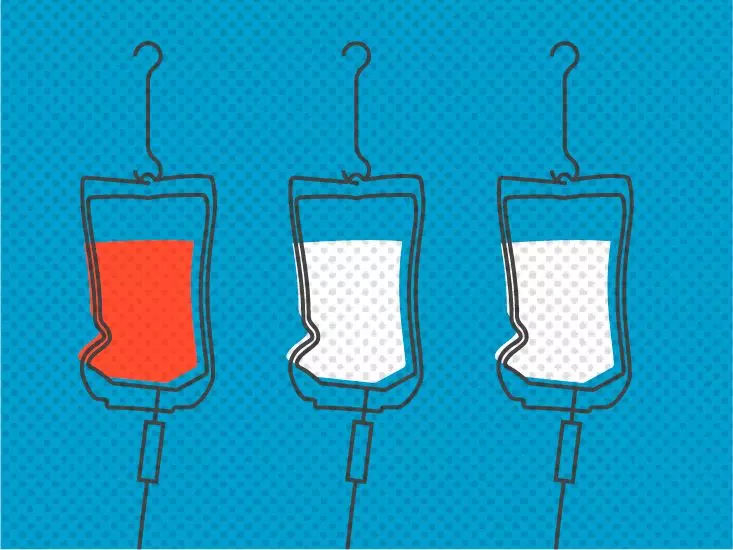Multiple myeloma, a complex and often aggressive form of blood cancer, afflicts thousands of adults each year, leaving behind a trail of treatment challenges. One of the recent advancements in this field is Abecma (idecabtagene vicleucel), a groundbreaking infusion therapy designed specifically for adults battling refractory or relapsed multiple myeloma. While Abecma represents a beacon of hope for many patients, understanding its interactions with other substances is essential for ensuring the best possible outcomes and avoiding potential complications.
Understanding Abecma and Its Role
Abecma is a chimeric antigen receptor (CAR) T-cell therapy that utilizes genetically modified T cells to target and eliminate myeloma cells. It is administered only after standard treatments have failed or have shown ineffective results. This specificity highlights Abecma’s role as a last-resort therapy, offering a new life to patients who have exhausted other options. However, the rigorous process of managing advanced multiple myeloma also requires careful consideration of how various substances can influence its efficacy and safety.
Potential Interactions: A Deep Dive
Abecma is unique in that it has not been reported to interact adversely with many common medications and supplements. That said, the nuances of drug interactions cannot be overlooked. An interaction occurs when one substance alters the pharmacological response of another. Although the manufacturer has stated a lack of documented interactions with other drugs, patients must be diligent in disclosing all medications, including over-the-counter drugs, herbal supplements, and even recreational substances. This transparency is crucial in helping healthcare providers anticipate any unforeseen complications.
Importantly, while no specific contraindications to alcohol consumption have been reported, healthcare professionals often advise moderation. Alcohol can exacerbate side effects such as nausea, dizziness, and sleepiness. Those undergoing treatment with Abecma need to weigh the potential risks of consuming alcohol, as doing so may further complicate their overall treatment experience.
Vaccines and Lab Tests: Caution Required
A significant consideration while undergoing treatment with Abecma is its interaction with vaccines, particularly live vaccines. These vaccines, which contain a weakened form of a virus or bacterium, can pose serious risks because Abecma diminishes the immune system’s ability to respond effectively. If a patient receives a live vaccine while on Abecma, they may inadvertently contract the very illness the vaccine aims to prevent. Therefore, consulting with a healthcare provider about any necessary vaccinations before initiating treatment with Abecma is non-negotiable.
Additionally, Abecma can yield false-positive results on certain HIV tests. This deceptive outcome necessitates clear communication between patients and their healthcare teams. Awareness of ongoing treatments such as Abecma empowers doctors to choose appropriate tests that will not lead to misleading results, which further emphasizes the importance of transparency in patient-healthcare provider interactions.
The Cannabis Conundrum
In the contemporary medical landscape, cannabis and hemp-derived products like cannabidiol (CBD) have emerged as popular subjects of discussion. While there are currently no reported interactions between cannabis use and Abecma, this does not imply safety. Given cannabis’s complex nature and variable effects on individual health, patients should exercise caution and seek medical guidance regarding its use alongside their treatment regimen. Patients should not only consider the potential risks of cannabis but also reflect on how its use may influence adherence to their Abecma treatment plan.
The Proactive Approach to Treatment
To optimize the efficacy of Abecma and mitigate potential risks, a proactive approach is crucial. Patients are encouraged to maintain an open dialogue with their healthcare teams, share any medication changes, and keep log of all substances they consume. This collaboration is vital in navigating the complexities inherent in cancer treatments.
Additionally, understanding the literature surrounding Abecma—beyond mere drug interactions—serves to empower patients. Comprehensive education about their condition, treatment options, and procedural protocols enables patients to engage actively in their healthcare decisions, fostering a spirit of partnership with their medical team.
Ensuring safe and effective use of Abecma is not solely the responsibility of healthcare providers; it necessitates an informed and engaged patient. Both parties must work in tandem to navigate the complex journey of battling multiple myeloma. With ongoing research and communication, Abecma has the potential to transform lives while upholding a commitment to patient safety.

